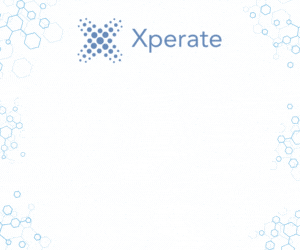What are law firms’ three biggest mistakes when implementing data governance frameworks? Find out with Iron Carrot
Iron Carrot has worked alongside several law firms to help them develop and implement their data governance frameworks and roadmaps. We have seen some common errors and misapprehensions that we’ve helped them address.
#1 Assuming the Framework can run by itself
When designing a data governance framework’s strategic, tactical, and operational layers, it is easy to think they can be self-organising. Creating a committee and appointing a chairperson responsible for setting up and running meetings are often seen as the only requirements to make each framework layer work correctly.
For example, everyone assumes the chair will take the minutes, but no one communicates this, so the minutes aren’t taken. Without minutes there cannot be transparency. Without transparent communication, stakeholders disengage from the framework and view it as another failed initiative.
Once the framework’s roles, responsibilities and accountabilities have been designed, stakeholder enthusiasm often encourages Data Governance Leads to progress faster and jump straight into nominating people for positions. This ignores the necessary (but less exciting) step of figuring out the details of how the framework will work. Creating and documenting an operating model for the framework is just as essential as making the framework itself.
Data Governance Framework designers must remember administrative tasks like setting agendas and coordinating communication between the layers when identifying roles and responsibilities. For example, mechanisms for escalating or delegating need to identify the person accountable for doing so explicitly.
#2 Lack of Expectation setting
It’s common for new data governance frameworks to get launched with considerable publicity and be forgotten within a few weeks because group members’ behaviour stays the same. Senior members focus more on talking about objectives rather than getting them done. Junior members concentrate on their day-to-day tasks instead of working cross-functionally to improve their data.
Lack of change is not, as many people think, a result of a lack of commitment by the group members. It is a lack of clearly set expectations.
It is not enough to define the role of a framework group or group member; you also need to explain what they are expected to do and how they will do it.
Senior members must understand that the framework expects them to help junior members find the time in their week to contribute to data governance activities. Junior members are expected to highlight barriers to progress (lack of time, decision, or resources) with the framework.
#3 Excluding key stakeholders
Because a data governance framework is a new structure for the firm, it is easy to forget critical stakeholders who add value to framework activities. This is always done accidentally, but excluding important roles can create barriers to the effectiveness and credibility of the framework.
As a result, when you find the critical stakeholders, convincing them of the benefits of a data governance framework is much easier if they have been involved in all early stakeholder conversations.
When gathering stakeholders to contribute to your firm’s framework design, cast the net as wide as possible. Ensure you don’t miss them by asking as many senior people as possible to review working group memberships and nominate ‘missing’ people.
The data governance purpose of functions like Data Protection Officer (DPO) is evident. However, it must also be clarified for roles like Records Manager, I.T. Security Lead, Enterprise Architect, and Reporting Manager. Ensure these critical people have a distinct role in the framework and define their contribution clearly.
Final Advice
This stuff sounds like common sense, which makes it the stuff that’s most frequently overlooked and becomes the cause of data governance failure.
It is much harder to re-engage stakeholders to re-start data governance after a failed attempt – so ensure you include logistics, clarity of expectations, and key stakeholders.



